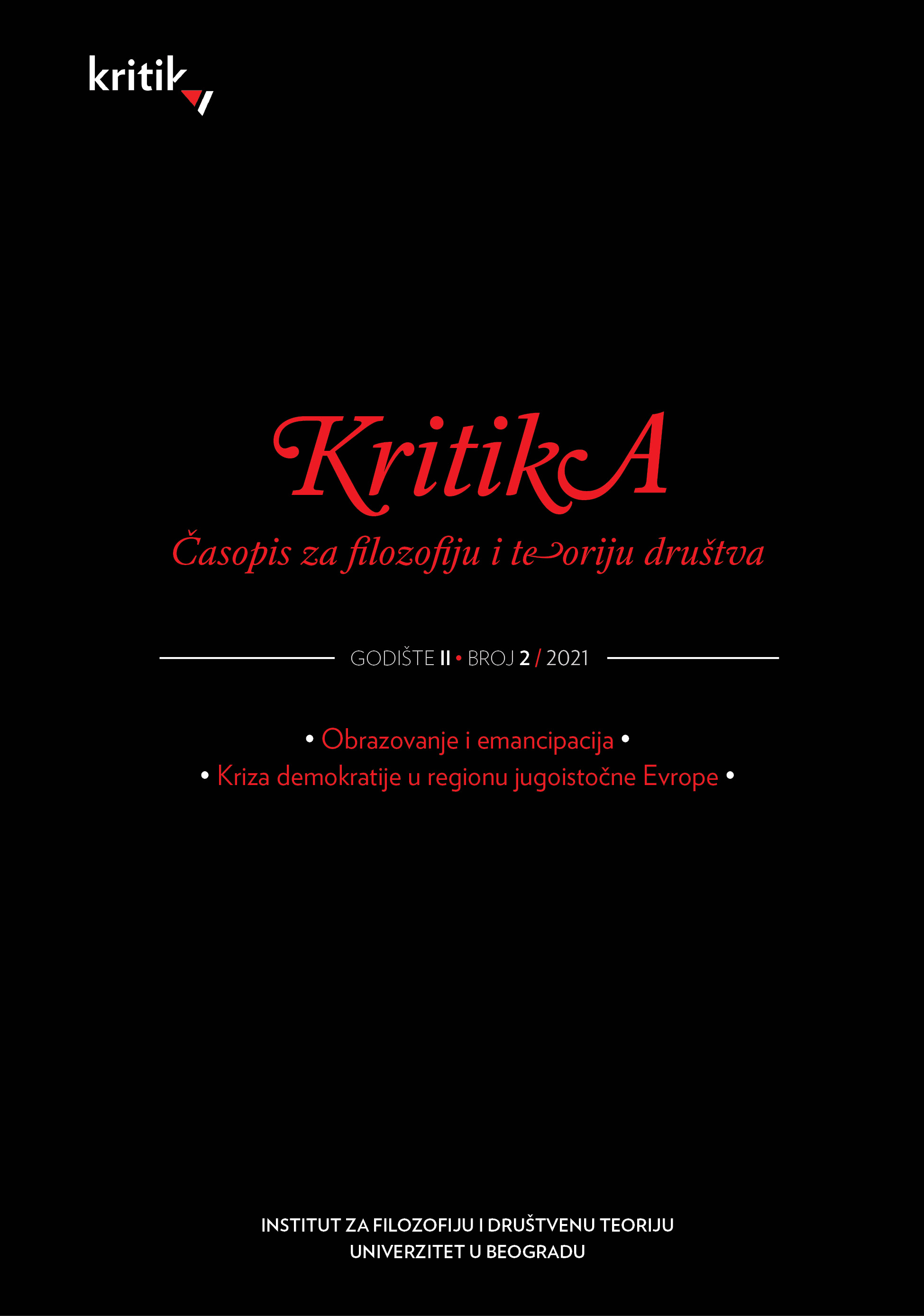MORALNO OBRAZOVANJE KAO USLOV ZA PRAKTIKOVANJE SLOBODE KOD KANTA
KANT’S CONCEPTION OF MORAL EDUCATION AS A CONDITION FOR PRACTICING FREEDOM
Author(s): Katarina NjegovanSubject(s): Ethics / Practical Philosophy, German Idealism, Sociology of Education, Philosophy of Education, Pedagogy
Published by: Institut za filozofiju i društvenu teoriju
Keywords: self-production; moral exemple; Gesinnung; self-perfection; character; maturity; apathy and virtue;
Summary/Abstract: The paper analyzes Kant’s conception of moral education and observes the following: 1) Kant begins his booklet dedicated to education by claiming that man is nothing but what education makes of him. This means that educability is not just one of the human characteristics, but the most important one. 2) Moral development is an “infinite” process and refers to the human race as a whole. Due to the fact that moral perfection, as an eternal aspiration and ideal, is unattainable for an individual, education strives for the moral perfection of the entire human species, which is its ultimate goal. 3) The goal of the moral education of an individual is moral maturity. A morally mature person governs himself by taming the inclinations which enables the practice of his own inner freedom. 4) The greatest challenge to moral education is man’s innate and inalienable propensity to evil, because it should show how it is possible to perfect such a being. 5) Given that the entire use and misuse of human freedom depends on the attitude of a man’s will (Gesinnung), the main job of human beings is constant work on the maintenance of this will. Bearing in mind that moral education is focused on this maintenance, we conclude that the practice of inner freedom depends on it.
Journal: Kritika: časopis za filozofiju i teoriju društva
- Issue Year: 2/2021
- Issue No: 2
- Page Range: 225-239
- Page Count: 15
- Language: Serbian

